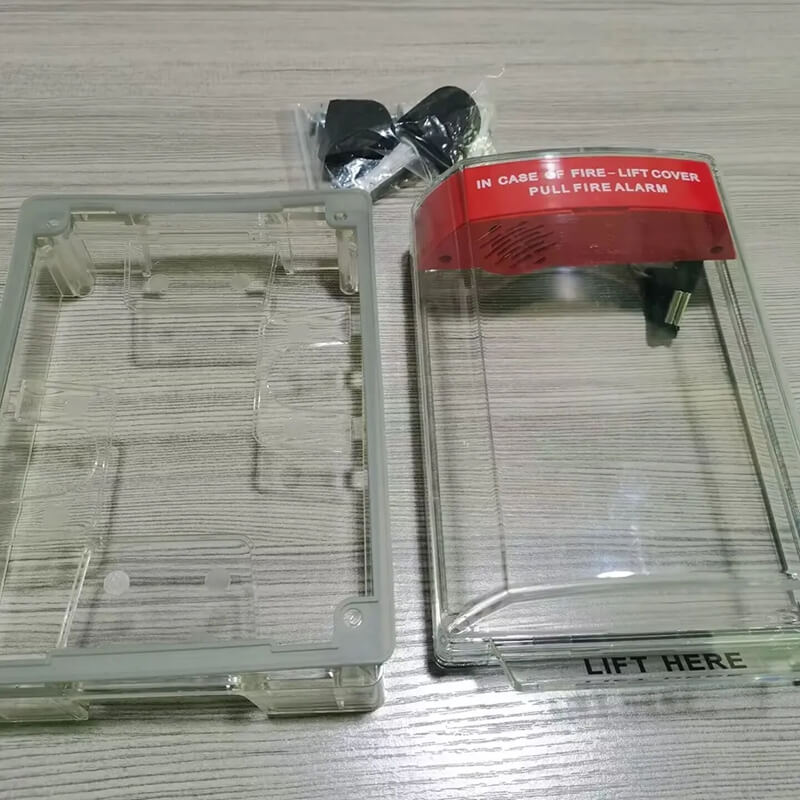Fire alarms should not have covers that obstruct their functionality. Here's why:
-
Proper Operation: Fire alarms need to remain unobstructed to detect smoke, heat, or other signs of fire effectively. Covers can interfere with their sensors, delaying or preventing activation during an emergency.
-
Building Codes and Regulations: Most fire safety codes and standards (e.g., NFPA 72 in the U.S.) require fire alarms to be unobstructed and easily accessible for maintenance and inspection.
-
False Sense of Security: A covered fire alarm may give the impression that it is operational when it might not be functioning correctly.
When Covers Might Be Used:
-
Temporary Protection: During construction or renovation, temporary covers may be used to protect fire alarms from dust or debris. However, these covers must be removed immediately after the work is completed.
-
Specialized Environments: In certain industrial settings, fire alarms may have specialized protective covers designed to allow proper airflow and detection while shielding the device from harsh conditions. These protective covers must comply with safety standards.
Best Practices:
-
Ensure fire alarms are installed in accordance with manufacturer guidelines and local fire safety codes.
-
Regularly inspect and test fire alarms to ensure they are functioning correctly.
-
Never use decorative protective covers or items that block the alarm's sensors.
If you have concerns about a fire alarm being accidentally triggered (e.g., in a kitchen), consider relocating the alarm or using a heat detector instead of a smoke detector in that area. Always consult a fire safety professional for guidance.
-
 What It Is Pull Station Protective Cover ?
What It Is Pull Station Protective Cover ?Do you like ?0
Read more -
 Do call points need covers ?
Do call points need covers ?Do you like ?0
Read more -
 Should my manual call points have covers?
Should my manual call points have covers?Do you like ?0
Read more -
 Protective Manual Call Point Cover
Protective Manual Call Point CoverDo you like ?0
Read more -
 We All Need Manual Fire Pull Station Covers
We All Need Manual Fire Pull Station CoversDo you like ?0
Read more -
 Sumring fire alarm plastic cover
Sumring fire alarm plastic coverDo you like ?0
Read more









